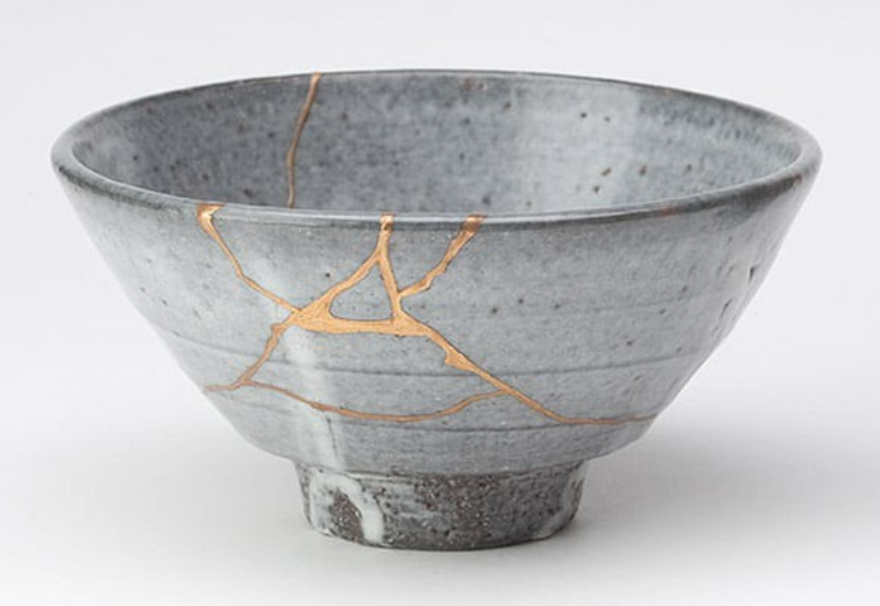The current environment has challenged and shifted relationships like never before. The relationships between charities and corporate partners have been tested and some won’t ever be the same again.
In Japan there is an ancient tradition of repairing broken pottery by mending and filling the cracks with gold or silver. The art of ‘kintsugi’ emphasises the fractures and turns them into a beautiful art form, which creates new value through highlighting the flaws and imperfections.
The extraordinary events of recent months have caused everyone to rethink which relationships are the most important to them. Rather than focus on the stresses and fractures emerging in relationships, it is better to embrace the opportunities to reset and reposition corporate partner relationships and nurture into something stronger for the future.
The kintsugi tradition provides some inspiration for how to nurture and develop relationships with corporate partners in a changing environment.
- Exposing vulnerabilities
The bushfires, drought and COVID-19 disasters have exposed the vulnerabilities of both corporates and community partners. They range from an immediate loss of income to an existential threat to the businesses and their staff. It has been an opportunity for charities to tell emotionally compelling stories about the impact of the disasters on their core constituents, not just the organisation itself. There has been some fantastic advocacy on behalf of community groups that are severely impacted, such as the ASRC with asylum seekers, Launch Housing with homeless people and domestic violence services highlighting the risk of family violence during lockdown.
Corporates have been able to share with charity partners their concerns about their staff, customers and networks in this crisis. This has presented opportunities for charities to address those vulnerabilities with some tangible support, such as Beyond Blue offering mental health advice and Australian Childhood Foundation providing resources to help parents talk to their children about the crisis.
The ability to explore and address vulnerabilities on both sides enables relationships to be nurtured in a transparent and honest way, which provides strength and support to both community and corporate partners.
2. Acknowledging limitations and mistakes
The crisis has forced charities and corporate partners to rethink their relationships and consider what’s working and what needs to change. International aid agencies like CARE or Plan are unable to run some of their programs in developing countries due to restricted access, putting corporate partnerships on hold for the near term. Similarly, charities working in material aid like St Kilda Mums can’t have large groups of corporate volunteers in the warehouse due to distancing and hygiene restrictions. On the corporate side Qantas can’t collect customer donations for UNICEF as most of its planes are grounded.
The act of acknowledging limitations and mistakes is a powerful tool in strengthening relationships with corporate partners. It allows both sides to explore solutions together and celebrate the successes that come from adaptation and innovation. Weaknesses become strengths and mistakes become opportunities if the relationship between partners is frank and open.
3. Building trust and mutual understanding in the relationship
Just as the kintsugi tradition shows that repair is better than throwing something away to replace it with new, it is more valuable to nurture existing relationships with corporate partners than start again with new ones. Shared experiences in a time of crisis build greater trust and mutual understanding. When you’ve both been trying to resolve a wicked problem whilst juggling home schooling, wobbly bandwidth and Zoom sessions in your trackpants, then there’s a level of honesty in the relationship that provides the foundation for a more resilient and valuable partnership.
Actively nurturing relationships with your corporate partners in a crisis environment is probably the best investment you can make in future partnership success. Even if the partnership ends due to economic pressures, you will need to leave the relationship in the best condition possible. A corporate partnership professional recently told me that his previous corporate partners and ones who had held discussions but never finalised a partnership were reaching out to him in the current situation, asking what they could do to help. That’s a testament to great relationship management and the level of respect and trust he had built for his charity. Just because the partnership was no longer operational didn’t mean that the relationship wasn’t valuable.
Learning from the kintsugi approach means embracing the flaws and fractures caused by the external environment and nurturing relationships with corporate partners to build something together that is stronger, resilient and more valuable for the future. If you’d like to know more about nurturing corporate partnerships and how to find new opportunities in the current environment, then contact us at info@stellarpartnerships.com to book your free 30 minute consultation session.

